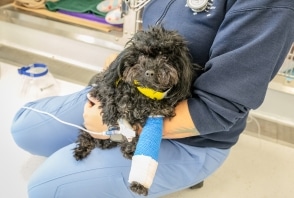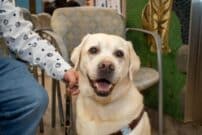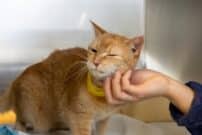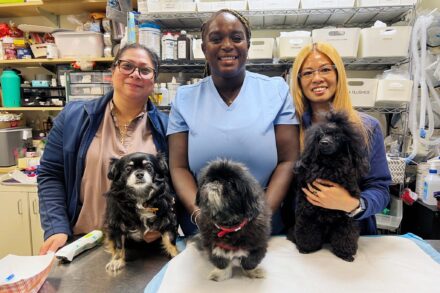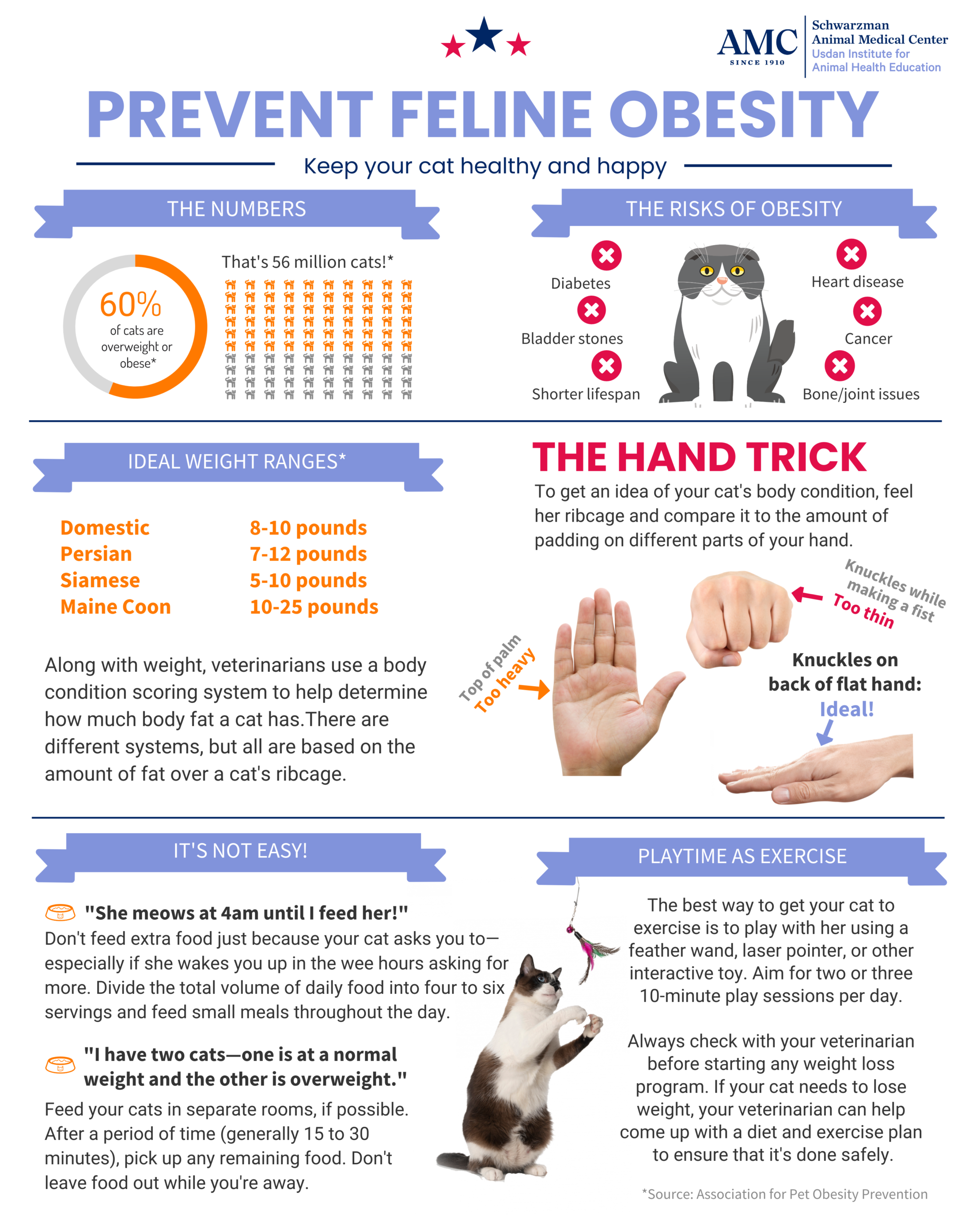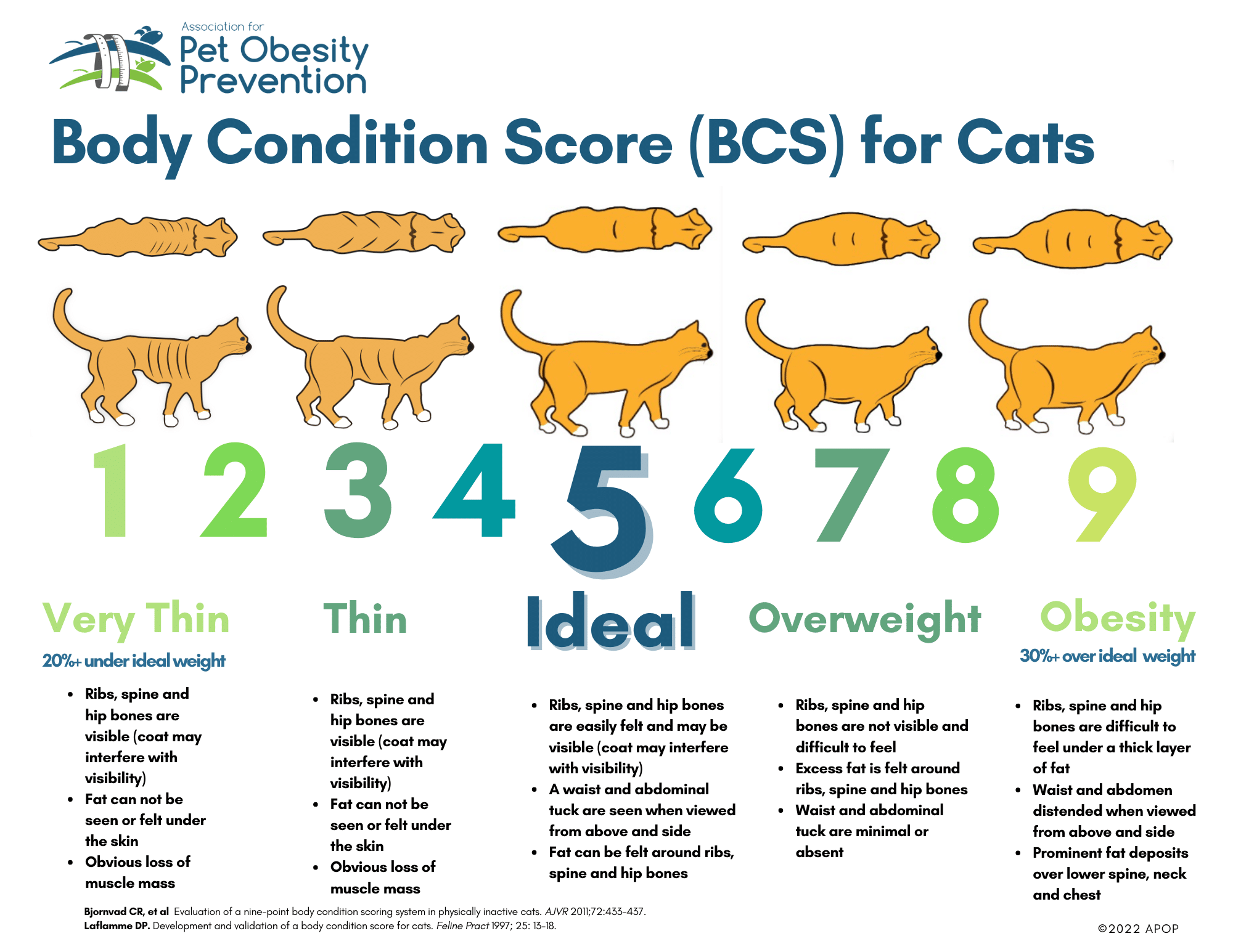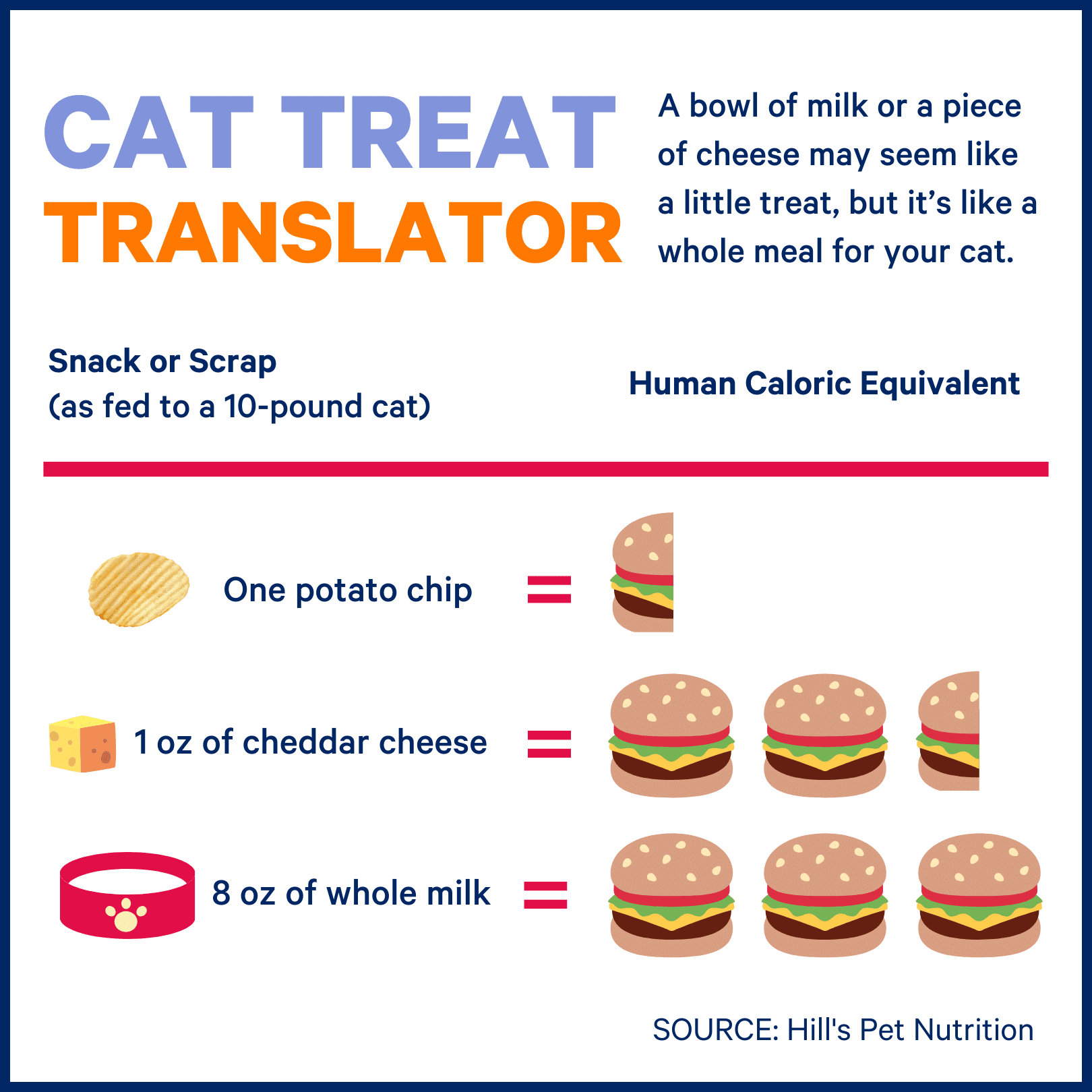Weight Management for Cats
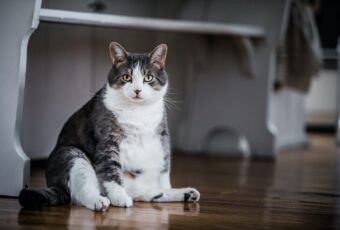
The Association for Pet Obesity Prevention estimates that 60% of cats are overweight or obese. In animals, fat starts to accumulate around internal organs before it’s visible from the outside. That means by the time you notice your cat is gaining weight, her health may already be negatively affected. A 10-pound cat only needs about 200 calories a day.
Being overweight or obese doesn’t just affect how your cat looks, it also increases her risk for many health problems including:
- Cancer
- Decreased lifespan
- Heart disease
- Bladder stones
- Type 2 Diabetes and insulin resistance
- Osteoarthritis
If your cat does become overweight or obese, talk with your veterinarian about ways to get your cat back to a healthy weight. This could include a change in diet or starting an exercise program. Your veterinarian can help you to find a solution that works for you and your cat.
Body Condition Score
Body Condition Scoring (BCS) is a quantitative tool that is used to determine a cat’s body condition and fat accumulation. The scale ranges from 1 (very thin) to 9 (obese) with an ideal body score of 5. Changes in a pet’s weight can have many causes including dietary changes, feeding habits, physical activity, age, medication, as well as an underlying disease.
Make sure to discuss your cat’s ideal weight and nutritional needs with your veterinarian.
Make an Appointment
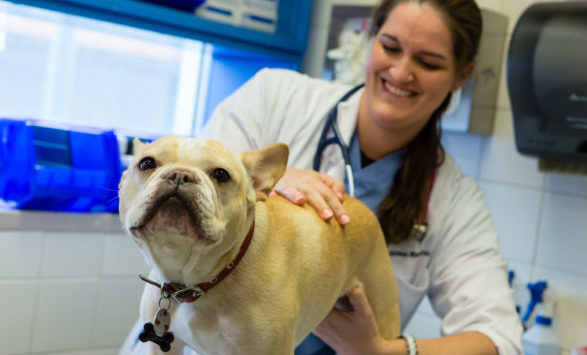
Primary Care
AMC’s Primary Care Service aims to provide the highest quality primary veterinary care and to educate our clients about the latest in healthcare and preventative medicine, so they can make informed medical decisions for their pets, enabling their companions to live longer, happier, and healthier lives.
Learn More


